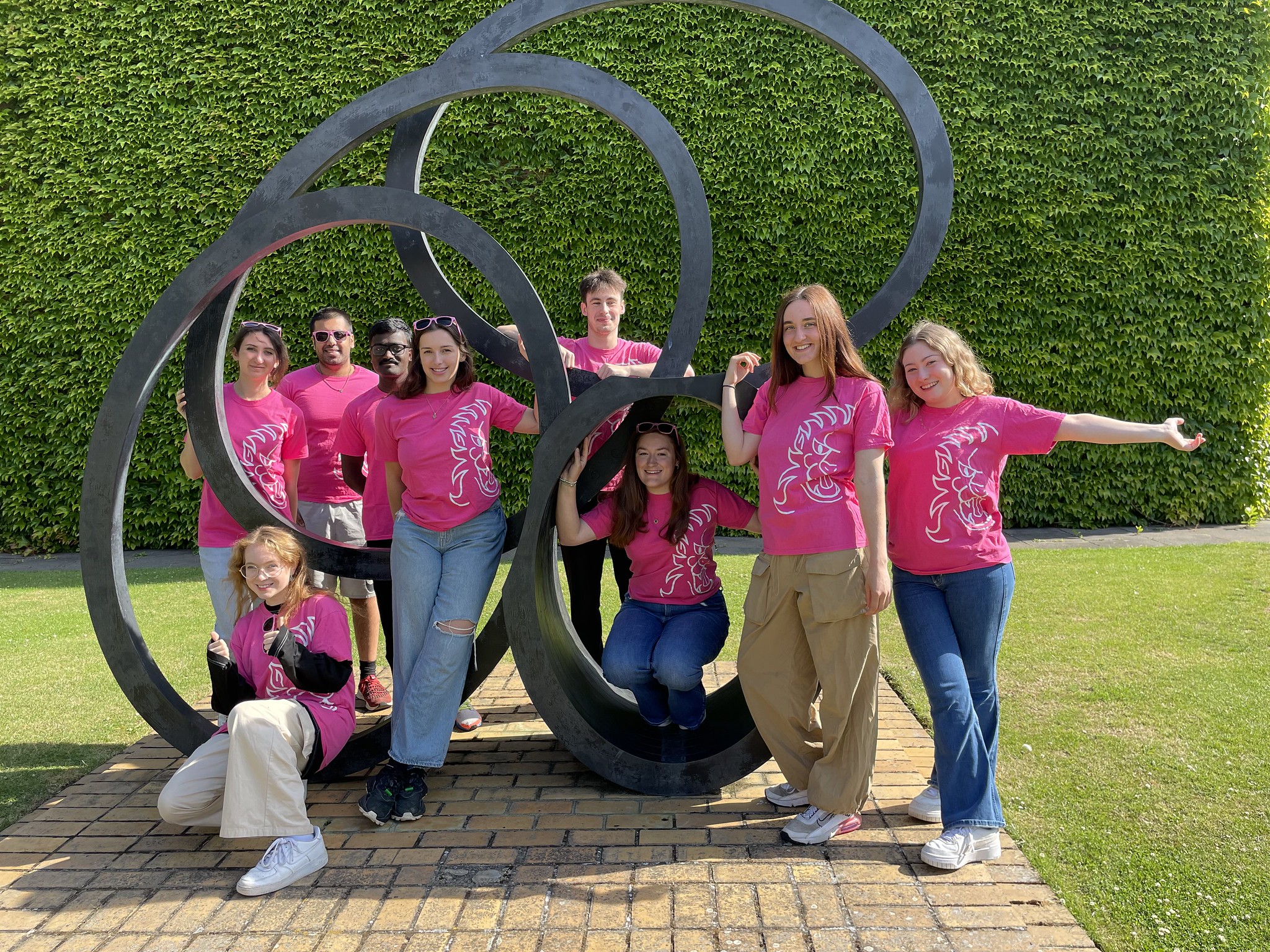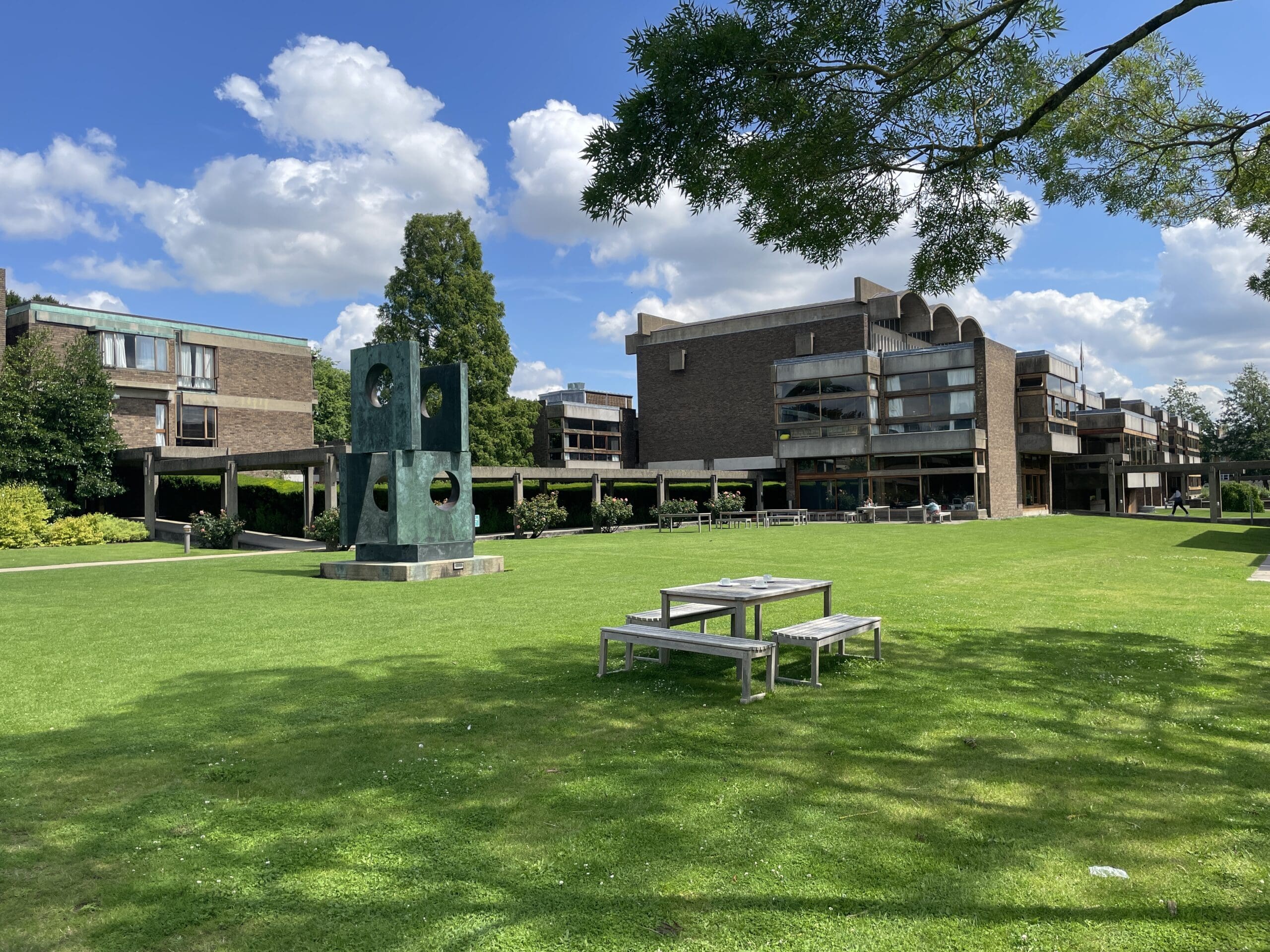
English
English at Churchill is a thriving and sociable literary community, to which we aim to admit able and enthusiastic undergraduates each year. Much of the teaching and supervision is provided by the College’s Fellows. Other teaching is exchanged with Fellows of other colleges, or given by advanced doctoral students, so that your individual interests can be developed through working with subject specialists. Your Director of Studies would discuss with you the overall shape of your deepening intellectual and literary commitments.
“I have only been at university for one term, but I am already loving studying English. My supervisors and Director of Studies at Churchill have been so supportive and welcoming, and have sparked some fascinating conversations about literature already. Churchill College is a great place to study because of its friendly, unpretentious and relatively relaxed environment – and in many ways it is lovely to be located a little bit further out from the busyness of the centre of town, whilst still being only a short bike ride away from my lectures.”
– Annabel, first-year student
I applied directly to Churchill and I think that one of the great strengths about studying English here is that Churchill is a STEM College: it encourages you to make friends outside of the subject, both from within and without the Humanities! Some of your best ideas come out of contrasts with what you become used to, and English studies as a whole is moving into an exciting new phase of interdisciplinary practice; Churchill really fosters that kind of cross-fertilisation and I’m very thankful for it.
Jack, third-year student
Entry Requirements
At Churchill, we want to admit undergraduates who will thrive during their time here, so – in their interests – we tend to set conditional offers in line with the typical attainment of Cambridge entrants, by course. On average, this allows us to make a relatively generous number of offers per place, but it also means that our requirements are usually a little more rigorous than the University’s minimum offer level.
You can learn more about how Churchill selects candidates, and our entry requirements and conditional offers by course, on our undergraduate applications page.
The University’s Entrance Requirements and International Entry Requirements pages may contain guidance relevant to you too.
Submitted work
If you apply to Churchill, we’ll ask you to submit two examples of teacher-marked written work. These should be taken from your present or most recent studies, and should not be re-written or corrected for your Cambridge application. Ideally, each piece should be 1500 to 2000 words in length, and one should preferably be on Shakespeare. In addition, we will ask you for a single-sheet summary of your super-curricular reading over the year leading up to your application – for most, this focuses on works of literature but it may also include literary criticism, history, and theory.
Admissions assessment
All English applicants are required to take a written assessment after shortlisting for interview. There’s more information on and linked from the University’s Admissions Assessments webpage.
Interview
The role of academic interviews in Churchill’s admissions process is explained on our interviews page. As part of your process, you may be invited to read and comment on a short piece of literary or critical writing. We are interested in the clarity of your thought and expression, your ability to develop ideas in response to your close reading of literary texts, and to defend or modify them when challenged.
Director of Studies

Dr Andrew Taylor
Careers
Recent Churchill graduates have pursued careers in (amongst others) comedy script-writing and performance, law, teaching, social policy, international journalism, accountancy, the Civil Service, BBC radio, with others continuing to postgraduate studies in English, but also Psychology and Theology. In short, the highly developed powers of critical analysis, persuasive argument and stylish exposition acquired through studying English at Cambridge will provide an excellent basis for your next steps.
Studying English at Churchill College
English is one of the most popular degree subjects in the UK. Students find studying it enormously interesting and intellectually rewarding, and the skills it helps to foster are greatly sought after by top employers in many fields. Cambridge has one of the world’s great English faculties, and we care very much about attracting the best and brightest students from any background and from anywhere in the world.
The Cambridge English course is unique for combining full historical coverage with the chance to specialise and develop your own interests. In the first two years of your degree, you cover the full historical sweep of literature written in the English language from the medieval period to the present day. In your third year you have the freedom to pursue the interests you have developed, by choosing from a range of specialist topics and undertaking independent, guided research on topics of your own devising. The course embraces all literature written in the English language, which means that you can study American and postcolonial literatures alongside British literatures throughout; there are also options to specialise in either or both of these areas in your third year, and to study literature in other languages. The course also embraces all genres and periods, including writing by, for example, philosophers and essayists, as well as the more traditional genres of poetry, prose, and drama.
The course is divided into two parts. The first part gives you a strong foundational knowledge of literature across the centuries. The second allows you to explore your own interests in more depth. Manifold approaches flourish here – for example, in poetic and aesthetic theory, in postcolonial writing in English, in Renaissance texts as ‘material’ objects, in film and its links to literature – and we do not encourage any single method. Instead, we hope to instil in you the confidence to undertake self-directed study and develop unique and original approaches of your own. You will be encouraged to define your own questions, and to go about answering them using the analytical and intellectual resources you have developed.
Full course details are provided on the Department’s Prospective Undergraduates webpage and the University’s Undergraduate Study webpage.
You may also be interested in:



